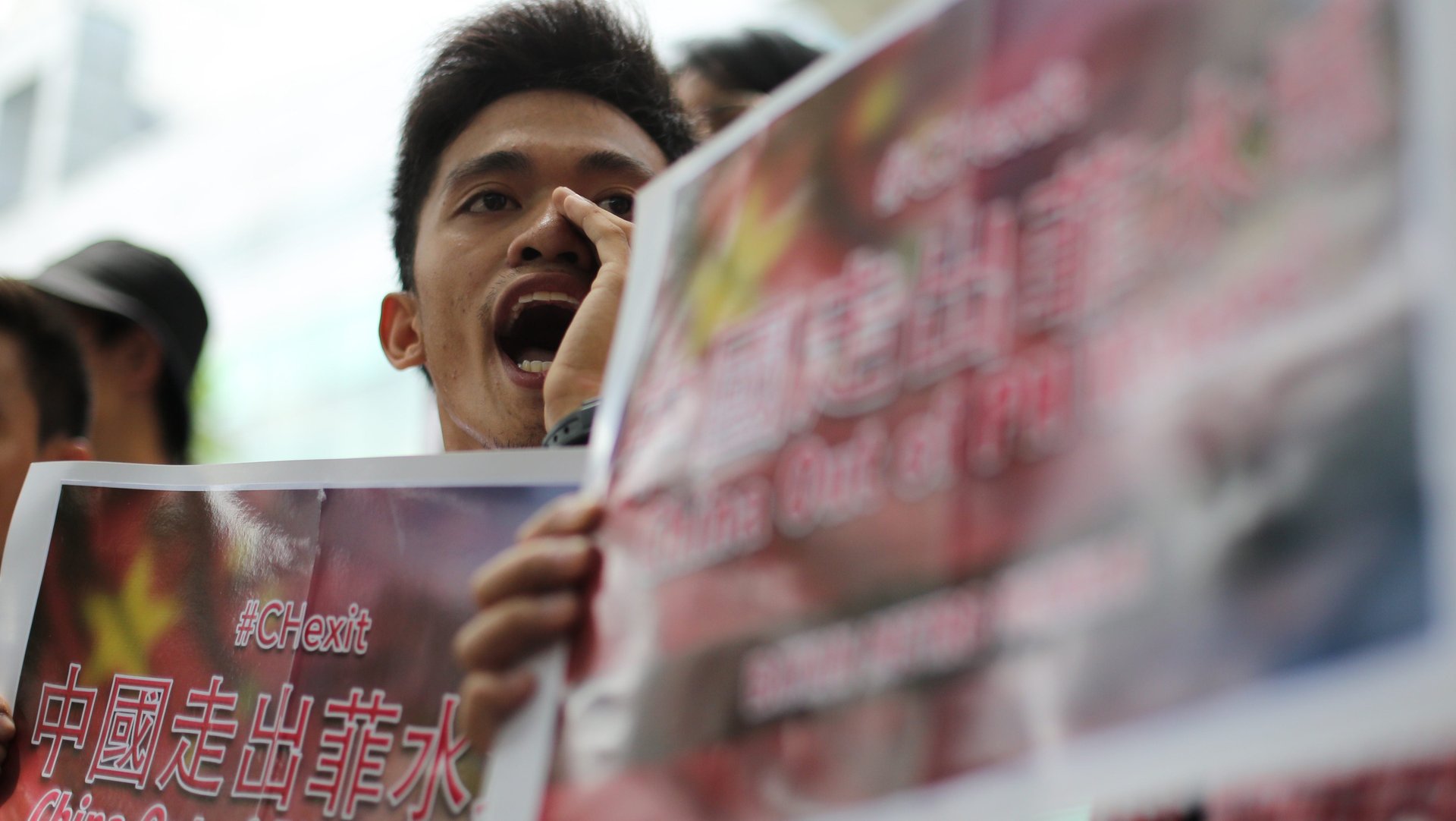China claims it is the “victim” in the South China Sea controversy
Beijing has put its propaganda machine into overdrive ahead of a ruling tomorrow (July 12) likely to undermine its sweeping territorial claims in the South China Sea.


Beijing has put its propaganda machine into overdrive ahead of a ruling tomorrow (July 12) likely to undermine its sweeping territorial claims in the South China Sea.
The People’s Daily, a state-owned newspaper, published a front-page editorial (link in Chinese) today entitled, “Who is breaking international law?” It read in part:
China is not the one doing harm, but the victim. Looking at the law, it’s the behavior of the Philippines and some other countries disobeying international laws and UN charters that should be condemned. All illegal actions to invade another country’s territory should be forbidden.
As anyone can see, the United States is trying to form a gang, desperately pushing the South China Sea issue in order to make it a multilateral, international matter, with the delusion that China would face so-called diplomatic pressure.
The (upcoming) ruling disobeys international law, but why does the self-proclaimed “international jury” America still feign ignorance about that? Just like the famous American lawyer Bruce Fein said, the US’s South China Sea policy is a sign of its “dangerous imperial thinking,” which is hegemonism. The US talks a lot about international law, but history shows that the US plays it. The US would endorse a law if it is in its interest. If a law restricts its behavior, the US would demean it. It would legalize the illegal, and make the legal illegal.
Japan and Taiwan have also been among the targets. A piece today (link in Chinese) in the state-controlled Global Times described Japan as the “biggest accomplice” in the US’s “rebalancing strategy” in Asia. Japan’s involvement, it explained, is another way to “get rid of the post-war system” that saddled it with a pacifist constitution. Japanese prime minister Shinzo Abe has been criticizing China’s “rightful actions” in the sea, it said, and using the supposed Chinese threat to justify his defense policies, which call for revising the constitution so Japan can have a regular military again. (The resounding victory of Abe’s ruling coalition in this weekend’s parliamentary elections could help him achieve that goal.)
An article appearing yesterday (July 10) in the pro-Beijing China Review argued that the South China Sea issue has put Taiwan’s new president, Tsai Ing-wen, in a difficult spot (link in Chinese). On the one hand, siding with the US meshes well with the pro-independence stance that helped get her elected. On the other, it only worsens relations with mainland China.
Not everything has been an attack. Today (July 11) is National Maritime Day in China, and over the weekend China announced that (link in Chinese) five new lighthouses, including ones on its controversial artificial islands, are ready for operation. Officials said the structures will help ensure maritime safety. Critics contend such lighthouses are just one more way for China to bolster its questionable territorial claims in the sea.